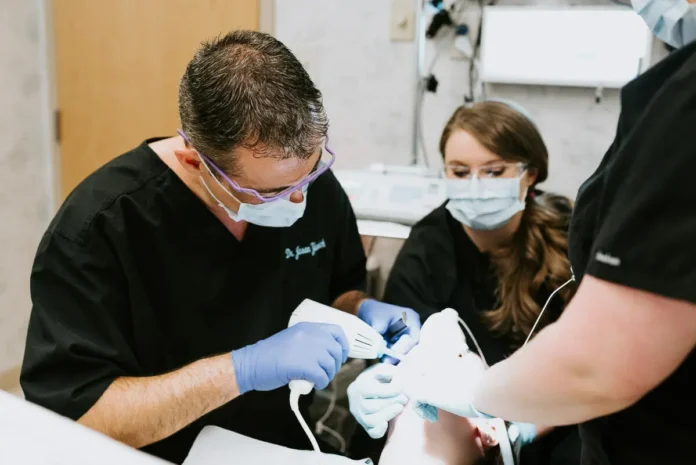Maxillofacial surgery may sound complicated, but it’s an important kind of surgery that helps people with problems in their face, jaw, and mouth. This surgery can fix injuries, improve how you chew or talk, and even help with how your face looks.
What Does Maxillofacial Surgery Treat?
Maxillofacial surgery is a medical procedure done by doctors called oral and maxillofacial surgeons. These specialists work on the bones, muscles, and skin of the face, jaw, and mouth. They help fix problems caused by injuries, birth defects, diseases, or even wear and tear.
Common reasons for maxillofacial surgery include:
- Fixing broken facial bones after accidents
- Correcting jaw problems that affect chewing or speaking
- Removing tumors or cysts from the mouth or face
- Treating severe dental issues that need surgery
- Repairing facial deformities present from birth
How Is Maxillofacial Surgery Different From Other Surgeries?
Unlike regular dental work or skin surgery, maxillofacial surgery deals with complex parts of your face and jaw. The surgeons must understand how your face moves and functions, so they use special tools and techniques. They also work closely with dentists and other doctors to make sure your face works well after surgery.
What Conditions Require Maxillofacial Surgery?
Your Doctor might recommend maxillofacial for the following reasons:
- Broken jaw or cheekbones
- Problems with your bite, like underbite or overbite
- Tumors or cysts in your mouth or jaw
- Congenital facial deformities (conditions present at birth)
- Severe dental infections that need more than just a tooth pull
- Sleep apnea caused by airway blockages
Can Maxillofacial Surgery Help With Sleep Apnea?
Yes! Sleep apnea is a condition where your breathing stops briefly during sleep. Maxillofacial surgery can help by adjusting the bones to open the airway and make breathing easier at night.
What Should You Expect During Recovery?
Recovery depends upon the type of procedure the professional chooses for you. Some surgeries might need just a few weeks, while others require several months to heal fully. Your surgeon will guide you through all the precautionary measures to take for speedy recovery.
What Are Common Side Effects?
It’s normal to have swelling, bruising, or some discomfort after surgery. Your surgeon may recommend medications and special care tips. If you follow all these instructions thoroughly, it will help you to heel faster.
Are There New Techniques That Make Surgery Safer?
Yes! Doctors use modern tools like 3D imaging and computer-guided surgery to plan and perform procedures more precisely. These technologies help reduce risks and improve results.
Are Minimally Invasive Procedures Available?
In some cases, surgeons can use smaller cuts and special instruments to do the job. .
What Questions Should You Ask Before Surgery?
- Here are some questions to consider:
- What exactly will the surgery fix?
- How long will the surgery take?
- What kind of anesthesia will I have?
- How long is the recovery period?
- What risks or side effects should I watch for?
- Will I need follow-up care or physical therapy?
- Asking these will help you feel more confident and prepared.
Conclusion: Why Maxillofacial Surgery Matters
Maxillofacial surgery plays a key role in helping people live better lives by fixing problems with their face, jaws, and mouth. Whether it’s after an injury, to correct a birth defect, or to improve breathing during sleep, this surgery can make a big difference.
If you think you might need this surgery, talking to a qualified oral and maxillofacial surgeon is the best first step. They can explain your options and help you understand what to expect. With modern techniques and expert care, many people have great results and return to normal life quickly.
If you want to learn more or have questions, don’t hesitate to reach out to a healthcare professional specializing in maxillofacial care.
